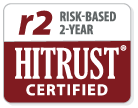Although many provider organizations, physicians, and health plans see the value in moving from fee-for-service to value-based care, the problem can’t be solved by technology alone. Often, it is not only a technology problem – it’s a clinical workflow problem. The result of current practices is an alarming rate of physician burnout. Although government regulations and industry experts weigh in on the importance of both value-based care and interoperability separately, the two are interdependent. Electronic health records were made to improve healthcare, not impede it. Healthcare IT execs and physicians should work smarter, not harder, to solve for interoperability, exchange of data, and ease of use of electronic health records all in the name of reaching value-based care adoption and improving patient lives.
Why the Data Matters
A new survey reveals only 37% of payers and 58% of healthcare providers are very confident that their member/patient demographic information is correct. Having the most up-to-do date patient data within the EMR for pre-and post-visit encounters helps ensure accuracy and timely delivery of needed information. Accurate and up-to-date data, embedded in the clinical workflow and EMR at the point of care, improves physician experience and reduces administrative burden to help ensure revenue integrity.
Why Timing Matters
When it comes to capturing revenue and coding claims after a clinical encounter, timing matters. Having clinical decision support that can deliver clinical activity summaries in days not months will accelerate the move from fee-for-service to value-based care.
Why Communication Matters
Many health plans cite payer-provider communication as a primary barrier to accurate claims and in closing care gaps. It is critical to provide patient data directly within the physician’s preferred clinical workflow (inside the EMR) to enhance adoption and clinical action by surfacing key payer insights and data into a closed loop workflow.
Join us for an expert panel with the E-Health Initiative – WEBINAR: Paging Dr. Burnout: Why Technology Should Improve, Not Impede, Physician Experience and Patient Care | eHealth Initiative (ehidc.org)
Our panel features:
- Curation Health Chief Medical Officer, Matt Lambert, M.D.,
- Mike Archuleta, Chief Information Officer, Mt. San Rafael Hospital and
- Steven Waldren, M.D., VP and CMIO, The American Academy of Family Physicians
- Jennifer Covich-Bordenick, CEO of the E-Health Initiative.

